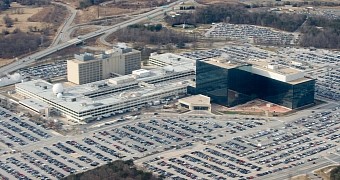The US Congress really wants the NSA to answer one simple question - how many Americans does the agency have data on? Unsurprisingly, the NSA does not want to give that answer out.
It's been years since Edward Snowden leaked files regarding the extensive operations conducted by the National Security Agency, including against American citizens; something that most definitely it is not supposed to be doing.
The NSA continues to argue that it doesn't abuse Section 702 of the Foreign Intelligence Surveillance Act (FISA) and the one thing that would undermine this statement is if they revealed how many Americans the agency spies on, The Register points out.
Just the other day, there were two meetings held in Congress regarding the reauthorization of Section 702 in December. The first one was held in secret with members of the security services, while the second was public. In the latter, several Congressmen have stated that the NSA has failed to provide an estimate for how many American citizens the agency has data on, even though it's been 11 months since the formal letter demanding this information was sent.
Empty arguments
One argument that members of the intelligence community have when it comes to this discussion is that it's difficult to tell the nationality of someone that's making a call or sending an email. That's not to say that it would be impossible, it would just involve a lot of extra effort and perhaps even a violation of privacy. Congressmen are having none of that explanation and believe that as the "greatest intelligence service on the planet," they should be able to do that.
Given how Section 702 explicitly says that it provides the intelligence service authority to gather information on non-US citizens and events occurring outside of the United States, and nothing more, it's not difficult to tell why the NSA is keeping mum on those numbers the Congress is asking for. After all, Snowden helped us all get a glimpse into the NSA and the kind of operations they deployed, involving both American citizens and foreigners.
PRISM, for instance, clearly revealed the NSA was spying on domestic telecommunications.

 14 DAY TRIAL //
14 DAY TRIAL //